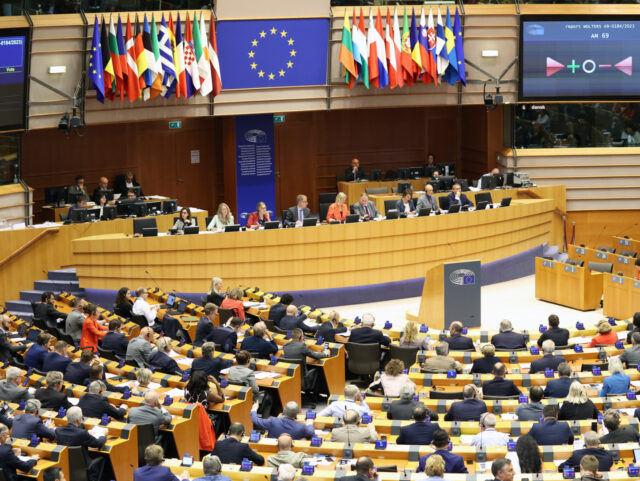An EU push for social media censorship is really aimed at restoring the monopoly on power the government and media used to enjoy, an MEP has claimed.
Tom Vandendriessche, an EU parliamentarian for the Flemish Vlaams Belang party, has alleged that the union’s continued push for social media censorship is an attempt to restore the near-absolute control the government and legacy media used to hold over public discourse.
The populist MEP made the comments in relation to a report on so-called “foreign interference” voted on by the European Parliament on Thursday.
In a press release published by the transnational body, the report is billed as discussing ways to better increase EU resistance to the malicious activities of hostile nations, such as Russia and China.
However, the release does not mention the report’s extensive attacks on free discourse on social media platforms, with the document going so far as to attack social media platforms for allowing people to criticise rhetoric on climate change.
It goes on to demand that EU and state-government bodies draw up plans to “counter disinformation” online, and urges the European Commission to create a so-called “code of good practice” to control the speech of both public officials and bodies.
“With this text, the European Parliament is also launching a frontal attack on social media and freedom of expression,” Vandendriessche explained in a statement given to Breitbart Europe.
The Flemish politician went on to warn that, although concerns about foreign interference are in many ways legitimate, the EU was ultimately using fears surrounding disinformation to “delegitimize nasty truths”.
“True fake news is easily refuted by the free debate, the free gathering of information and the personal judgment of the citizen,” he said. “The widespread use of the internet and social media undoubtedly resulted in an explosion of questionable news items of all kinds.”
“But the role of the traditional media, in particular, has decreased drastically due to the rise of social media. That is the real problem for the petitioners,” the Flemish politician continued. “The mass media and the government see their chance to restore their monopoly of power through a debate that is supposedly about disinformation.”
“The question remains what exactly disinformation is and who will determine what is and what is not covered,” he went on to add, vowing that he and his party would resist the creation of any sort of “ministry of truth”.

COMMENTS
Please let us know if you're having issues with commenting.